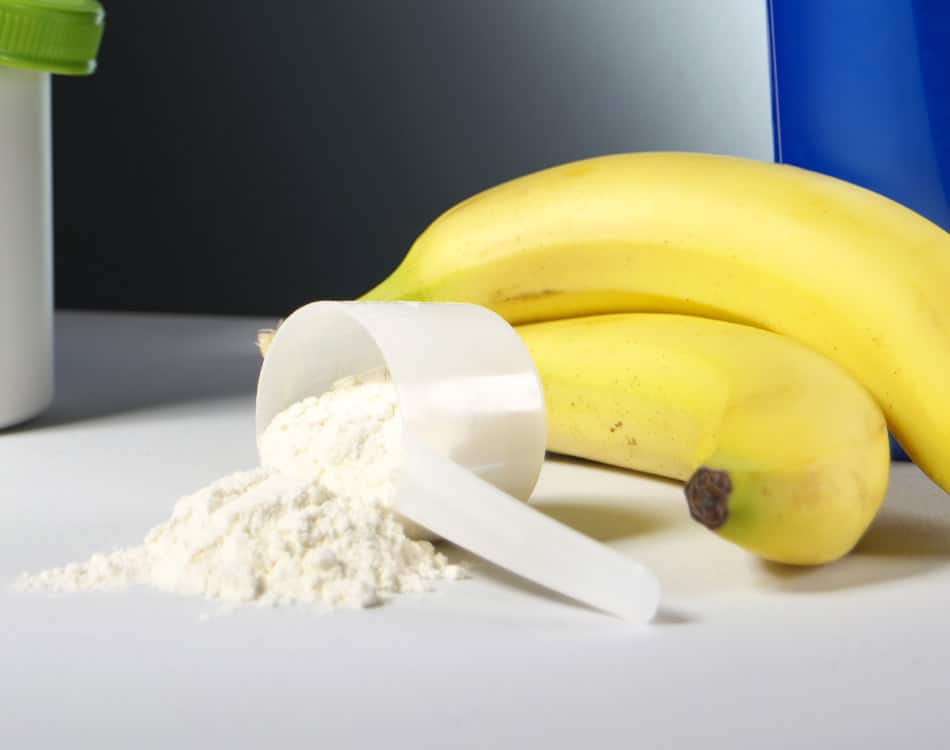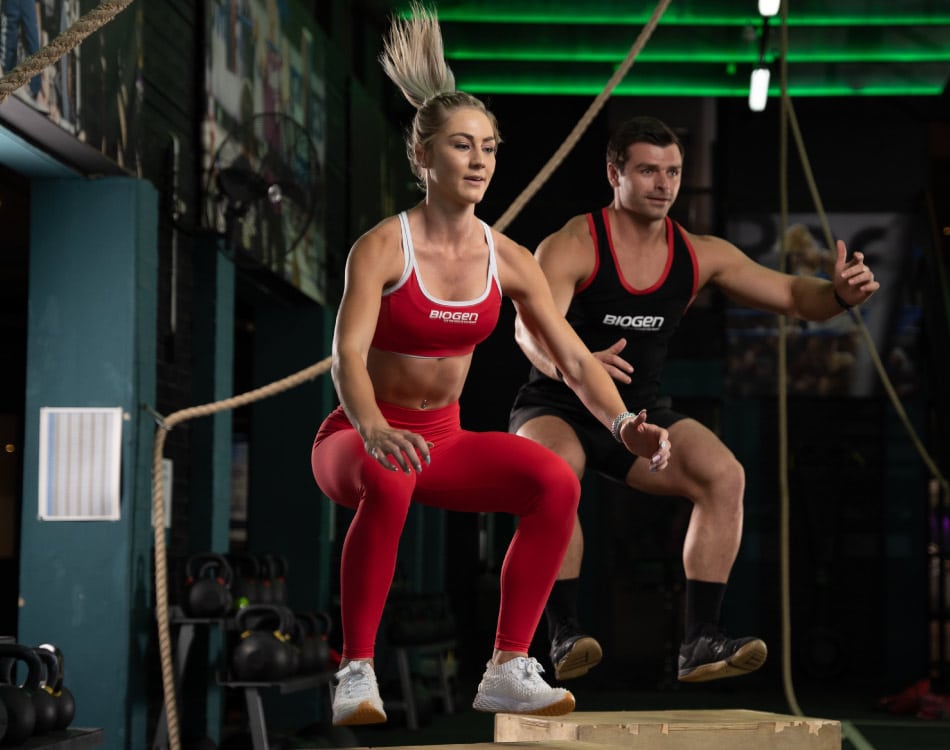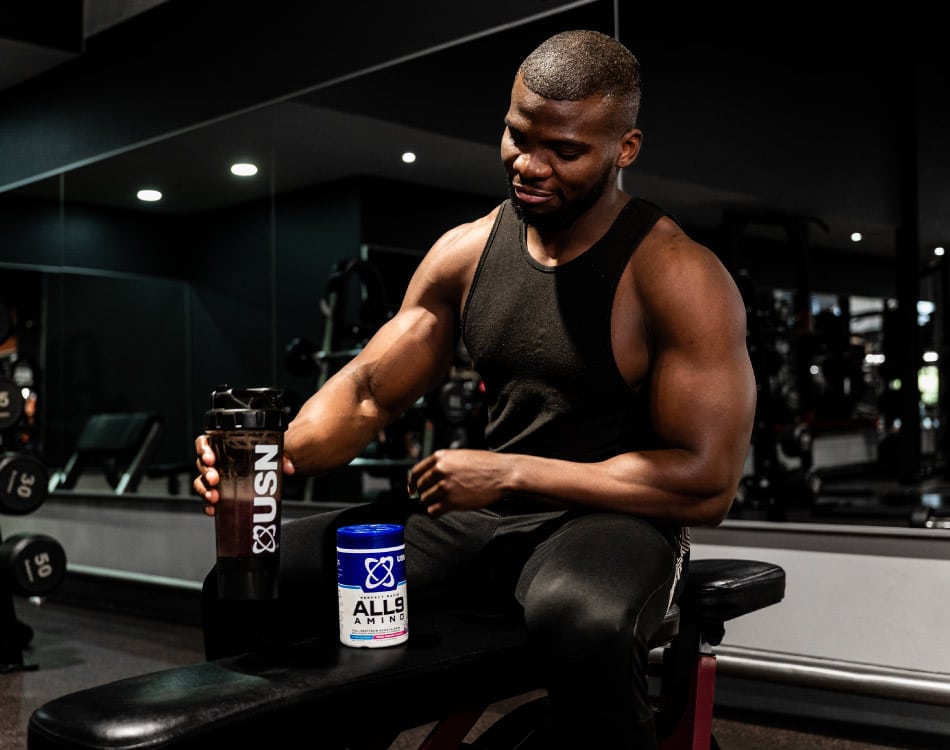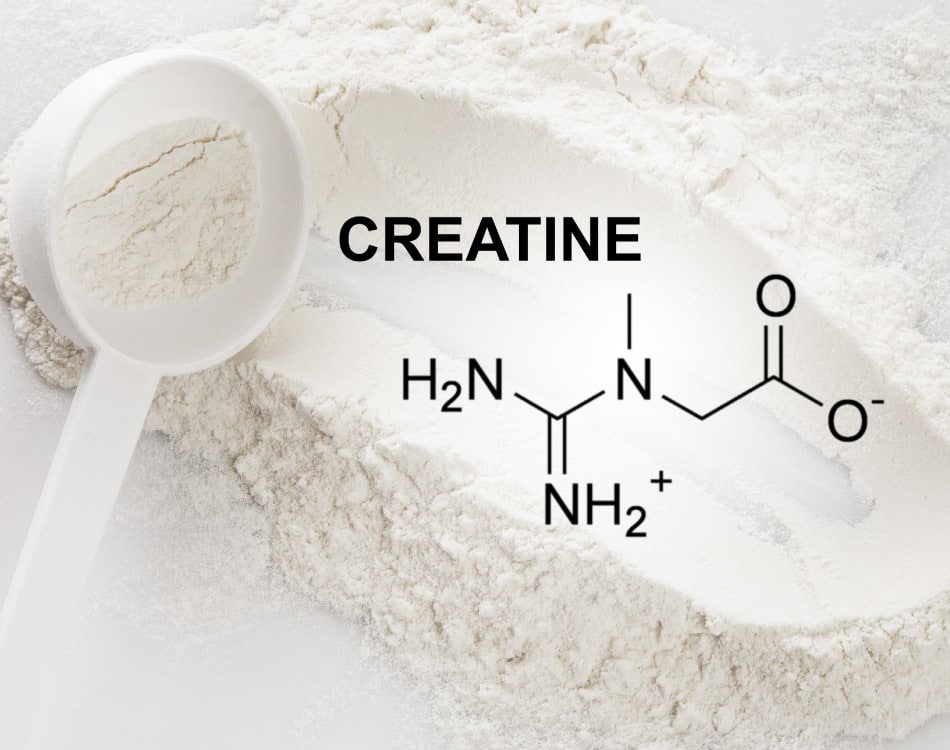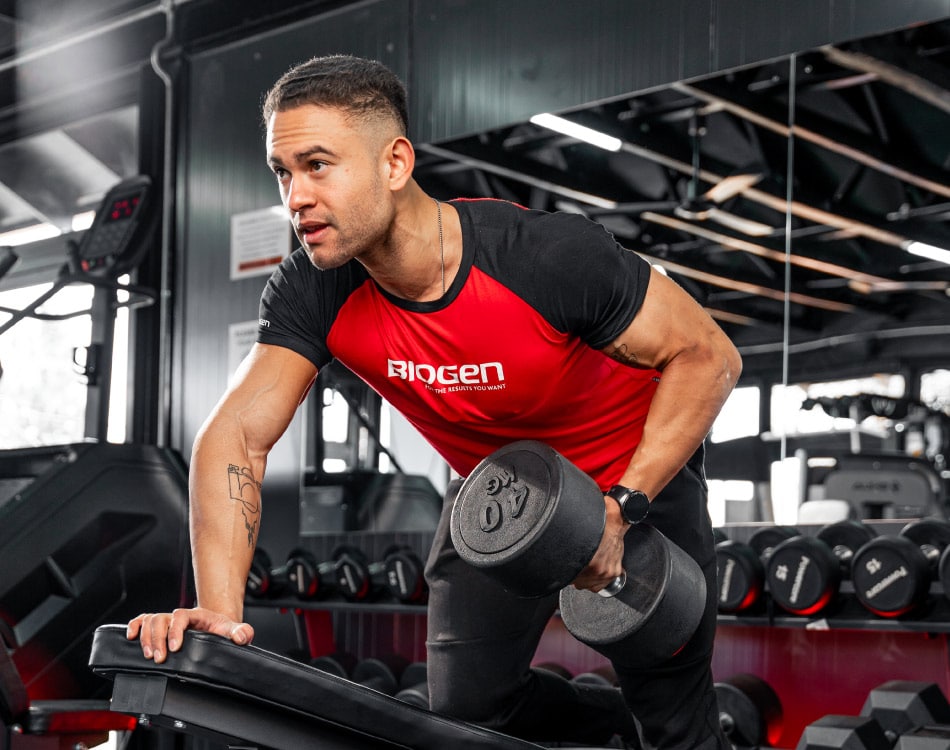When it’s time to hit the weights room, those looking to boost their performance and get a physical edge prime their bodies and minds with a pre-workout supplement.
These popular supplements are specially formulated with a combination of effective ingredients that can increase energy, enhance exercise endurance and boost workout capacity.
Look for these three ingredients in your favourite pre-workout to get the boost you need before training to take your performance to the next level:
READ MORE | The Low-Down On Pre-Workouts: Drink Up, Power Up & Demolish That Session
Nitric oxide boosters
Nitric oxide (N.O) boosters (also referred to as precursors) are a key ingredient to look for in a pre-workout supplement as these substances stimulate the production of nitric oxide, a gas molecule that acts as a vasodilator1, which widens blood vessels and improves blood flow to working muscles during the training session.
This increased blood flow delivers essential nutrients and oxygen to working muscles, which produces the energy needed to improve endurance, strength and overall workout capacity, along with anabolic hormones that can increase strength and support muscle growth.
The enhanced blood flow also facilitates the removal of metabolic waste products, which can reduce fatigue to further boost exercise endurance while potentially improving recovery between sets and workouts.
Common N.O boosters include L-citrulline and L-arginine and/or its derivatives, such as L-arginine alpha-ketoglutarate (AAKG).
READ MORE | 5 Supplements To Make You Better In The Gym
Beta-alanine
Beta-alanine is typically included in pre-workout formulations for its potential to boost workout performance by delaying neuromuscular fatigue and extends time to exhaustion2.
This non-essential amino acid increases carnosine, which is a substance that acts as a lactic acid buffer in muscles. By keeping levels of this byproduct of intense exercise in check, lifters can push out the point when their muscles start to fatigue so that they can push harder and train for longer periods.
The resultant increase in training density and overall volume often translates into better improvements in endurance, increased work capacity, and enhanced overall performance during high-intensity activities.
READ MORE | Beta-Alanine: A Research-Backed Supplement That Delivers Performance-Enhancing Benefits
Caffeine
Research3 affirms that a moderate dose of caffeine (3-5mg/kg body weight) taken an hour before hard training significantly increases performance compared to a placebo.
But, while many people revere caffeine for its potential to increase energy, its true super-power is the effect this popular stimulant has on your brain.
This psychoactive compound is proven3 in its ability to increase alertness, focus, and energy levels by blocking adenosine receptors in the brain, which helps prevent drowsiness and promotes wakefulness.
More importantly, studies4 show that those who take caffeine experience a significant decrease in subjective fatigue and perceived effort.
With the brain operating as a central governor for the neural regulation of effort and fatigue during exercise5, any substance reduces perceived effort can increase your workout capacity and extend time to exhaustion.
Caffeine also has a more direct impact on energy as it stimulates the release of adrenaline, a hormone that activates the body’s fight-or-flight response, leading to increased heart rate and blood flow. This boost in cardiovascular activity can enhance exercise performance, elevate energy levels, and potentially improve endurance.
READ MORE | Give Your Endurance Performance A Caffeine Kick
Time your intake
It’s clear that anyone who wants to benefit from vastly improved workout performances can increase mental alertness, boost physical energy levels, enhance strength and improve intra-workout recovery with a well formulated pre-workout supplement.
It’s always best to stick to label recommendations on dosing and timing, but most products are best taken 20-30 minutes prior to training for optimal results. So drink up and power through that session!
References:
- Adam M. Gonzalez, Jeremy R. Townsend, et al. Supplementation with Nitric Oxide Precursors for Strength Performance: A Review of the Current Literature. Nutrients. 2023 Feb; 15(3): 660. Published online 2023 Jan 28. doi: 10.3390/nu15030660
- J R Stout, J T Cramer, et al. Effects of beta-alanine supplementation on the onset of neuromuscular fatigue and ventilatory threshold in women. Amino Acids. 2007;32(3):381-6. doi: 10.1007/s00726-006-0474-z. Epub 2006 Nov 30.
- Simone Cappelletti, Piacentino Daria, et al. Caffeine: Cognitive and Physical Performance Enhancer or Psychoactive Drug? Curr Neuropharmacol. 2015 Jan; 13(1): 71–88. Published online 2015 Jan. doi: 10.2174/1570159X13666141210215655
- Bruno P. C. Smirmaul, Antonio Carlos de Moraes, et al. Effects of caffeine on neuromuscular fatigue and performance during high-intensity cycling exercise in moderate hypoxia. Eur J Appl Physiol. 2017; 117(1): 27–38. Published online 2016 Nov 18. doi: 10.1007/s00421-016-3496-6.
- T D Noakes, A St Clair Gibson, E V Lambert. From catastrophe to complexity: a novel model of integrative central neural regulation of effort and fatigue during exercise in humans: summary and conclusions. Br J Sports Med.2005; 39:120-124.

